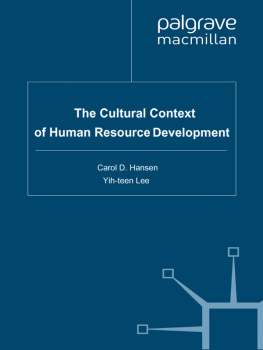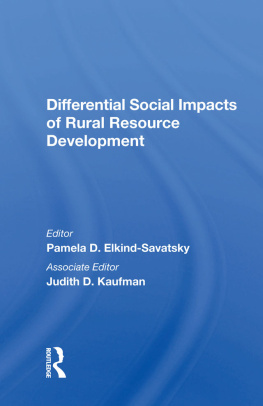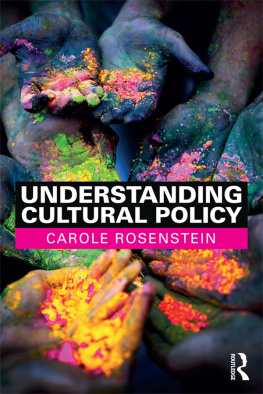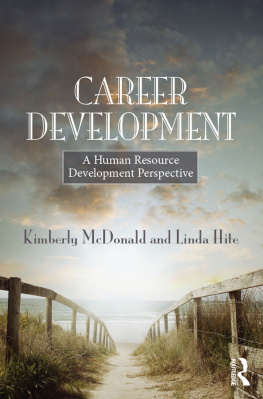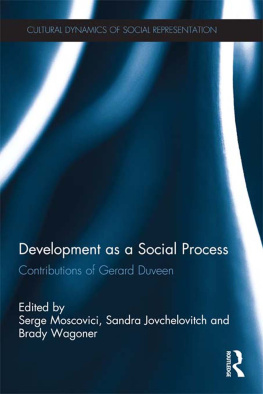The Cultural Context of Human Resource Development
The Cultural Context of Human Resource Development
Edited by
Carol D. Hansen
Associate Professor, Georgia State University, USA
and
Yih-teen Lee
Assistant Professor, IESE Business School, Spain


Selection and editorial content Carol D. Hansen and Yih-teen Lee 2009 Individual chapters contributors 2009
All rights reserved. No reproduction, copy or transmission of this publication may be made without written permission.
No portion of this publication may be reproduced, copied or transmitted save with written permission or in accordance with the provisions of the Copyright, Designs and Patents Act 1988, or under the terms of any licence permitting limited copying issued by the Copyright Licensing Agency, Saffron House, 6-10 Kirby Street, London EC1N 8TS.
Any person who does any unauthorized act in relation to this publication may be liable to criminal prosecution and civil claims for damages.
The authors have asserted their rights to be identified as the authors of this work in accordance with the Copyright, Designs and Patents Act 1988.
First published 2009 by
PALGRAVE MACMILLAN
Palgrave Macmillan in the UK is an imprint of Macmillan Publishers Limited, registered in England, company number 785998, of Houndmills, Basingstoke, Hampshire RG21 6XS.
Palgrave Macmillan in the US is a division of St Martins Press LLC,
175 Fifth Avenue, New York, NY 10010.
Palgrave Macmillan is the global academic imprint of the above companies and has companies and representatives throughout the world.
Palgrave and Macmillan are registered trademarks in the United States, the United Kingdom, Europe and other countries.
ISBN-13: 978-0-230-55134-3 hardback
ISBN-10: 0-230-55134-3 hardback
This book is printed on paper suitable for recycling and made from fully managed and sustained forest sources. Logging, pulping and manufacturing processes are expected to conform to the environmental regulations of the country of origin.
A catalogue record for this book is available from the British Library.
A catalog record for this book is available from the Library of Congress.
10 9 8 7 6 5 4 3 2 1
18 17 16 15 14 13 12 11 10 09
Printed and bound in Great Britain by
CPI Antony Rowe, Chippenham and Eastbourne
Figures
Tables
Preface
Purpose
The aim of this book is to broaden our knowledge of human resource development (HRD)a key issue in the workplace that helps people achieve optimum personal and organizational improvement. One way to advance knowledge is to explore the boundaries of existing theories, or more precisely, to put them into context. This book is distinctive in that it provides an insight into the understanding of HRD in various cultural contexts. Although it is generally recognized that a universal approach to management entails serious limitations, few books in HRD have explicitly addressed this issue.
Culture, as a set of beliefs, frames our expectations for what is appropriate and inappropriate behavior. It is a powerful determinant in how human performance problems are perceived and in how their solutions are formed, implemented, and evaluated. As a lens, we emphatically believe that cultural frames color both the role and the importance of our field as a scholarly endeavor and as a professional area of practice.
We, as the editors of this book, were born and raised in different parts of the world: North America and Asia. However, we have both lived and worked in a variety of international and organizational settings. We first met at a conference in Budapest, where dinner conversations were stimulated by differences in how we viewed the means and the ends of developing human resources. We found ourselves wondering if colleagues in other settings had similar questions. We knew that culture as a variable plays a role in our scholarship and in our practice. However, we knew little of the content of these differences nor of the evolution of their historical context. Over a period of several years, our inquiry grew, which fostered our decision to offer a descriptive voice in the hope that we may all better understand the substance of varying beliefs patterns and their substantive impact on our field.
We recognize that all members of a professional area belong to more than one culture at any given time. For example, Hansen is not only an American, she is a woman, she is an academic, and she is a member of a given scholarly field. We invited key scholars and practitioners to help us address the following questions.
1. Why is the contextual fabric of culture important to HRD? Why is it important to understand the construct of culture as more than an independent variable but instead to identify and to describe the actual content of a given set of beliefs?
2. How does the national or societal culture in which an organization is founded and sustained influence the role and strategies of HRD? For example, is there anything in the societal culture that might explain why Americans spend far more on management development than other cultures? Likewise, for example, why does the German approach to HRD emphasize technical training and assessment centers?
3. Does an individual organizational culture affect the support and strategic power of employee development interventions? In addition, do HRD specialists see their field in the same way as the decision-makers at the executive level? How might cultural differences in decision-making power impact the strategic role of the field?
Chapter content
The book is organized into three key parts. Each part is written and sequenced to address the three sets of focus questions that frame this book.
In Part One, Gary McLean sets the stage for us to consider the fundamental question of why the field of anthropology is paramount to our cultural comprehension of HRD. Anthropology in general, and cultural ethnography in particular, help us to understand patterns of thought and behavior. It is these unwritten and often unconscious behavioral rules that condition peoples interpretation of performance problems and solutions.
Next, Wei-Wen Chang builds upon McLeans argument for the grounding of our inquiry in anthropology by explaining the emic approach to the understanding of HRD from the insiders point of view; that is, what are the specific distinctions in how a given culture uniquely defines its concept of HRD? Far too often, in contrast, an etic approach, which is the outsiders perspective, is used to standardize approaches that have little meaning to those within the culture that we seek to serve.
Part Two consists of six chapters that view HRD from six different societal cultures. These contributions are specifically written both to remind us that our fundamental belief about work, relationships, and development are first formed at home. Scholars such as Alder, dIribarne, and Hofstede speak to the power of the societal culture in which we are raised. In fact, Hofstede suggests that these fundamental beliefs are formed by the time we reach puberty.
Hansen begins this part of the book by focusing on the anthropological power of professional myths. She offers a cross-cultural study of how cultural myths vary in three different continents. Data collected in Germany and in the Cte dIvoire are contrasted with those myths that first formed professional models of HRD in the United States, as developed by well-known contributors such as Len Nadler and Patricia McLagan.
Next page
